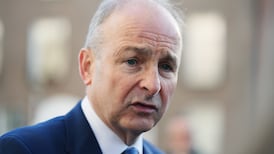Police today blocked Kremlin opponents from holding unlicensed marches in Russia's two main cities over the economic crisis, witnesses said, and detained more than 150 activists.
Marches of Discontent have become a trademark protest by a coalition of small opposition groups from liberals to communists led by former world chess champion Garry Kasparov and writer Eduard Limonov, the head of outlawed National-Bolshevik party.
Witnesses said that police trucks sealed off two squares in central Moscow, where the Other Russia coalition wanted to start its march. Police cordons prevented a handful of opposition supporters from entering the squares.
Police detained two dozen elderly Soviet officers at Pushkinskaya square and several opposition activists, including Mr Limonov, at Triumfalnaya Square two km (miles) away.
In St Petersburg, police blocked about 100 protesters who were planning to march down the city's main thoroughfare Nevsky Prospekt to Chernyshevsky Square, the venue of an officially allowed rally. Several opposition activists were detained.
Less than 500 protesters later turned up at the Chernyshevsky Square chanting: "No to police state!" and "Authorities, answer for the crisis!" The rally lasted for an hour and ended peacefully.
"They are saving their money," Sergei Gulyayev, a senior member of Other Russia coalition, told the rally. "They will not save the Russian economy. With this government, this president and this prime minister we are heading to a collapse."
Russian news agencies quoted police as saying over 150 opposition activists were detained in Moscow and St Petersburg altogether. Police detentions often do not last more than several hours and end in moderate fines.
Although their marches and sit-in strikes at government offices draw media attention, the radical opposition have enjoyed little public support during eight years of Russia's economic boom.
The opposition says the windfall of revenues from high energy prices has helped the government win popularity and silence the dissent. They hope the situation will change for them now that Russia is facing economic crisis.
The government admits that it will have to cut some of its social programmes and massive unemployment may become a reality as plunging oil prices dry up sources of budget revenues and melt hefty reserves accumulated in fat years.
"The country will be completely different at the end of 2009, and the regime will not be that strong," Ilya Yashin, a leader of a newly formed liberal opposition movement Solidarity said.
Reuters







